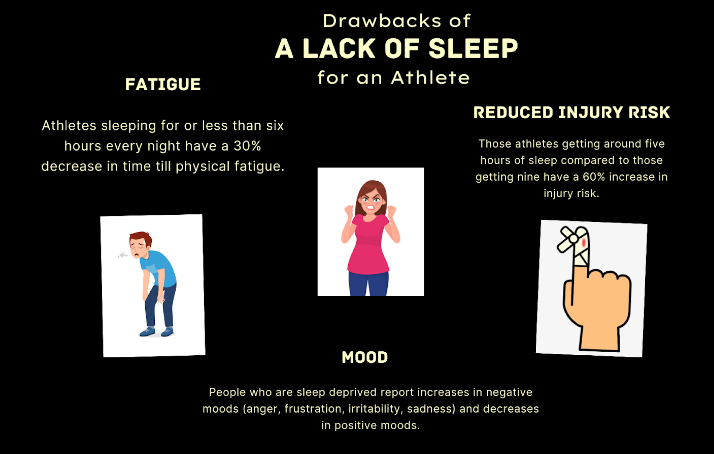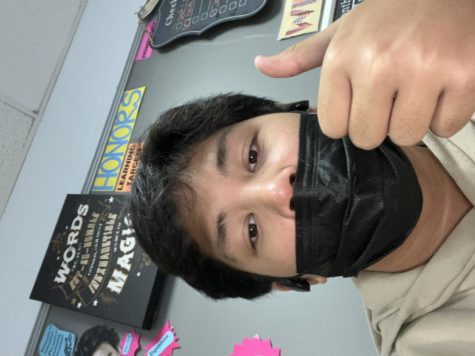A lack of sleep could be what’s wrong
Infographic that reveals the downsides for athletes who get less than the recommended amount of sleep every night, Created on May 16,2022, (By: Mason Crosby)
May 17, 2022
A common misconception among high school students is that sleep is not a top priority, this is entirely incorrect for almost everyone. Sleep is crucial, especially for teens, so it’s important for teens to get eight to 10 hours of good quality sleep, meaning deep or REM (Rapid Eye Movement) sleep. This is because deep or REM sleep is where the body recovers and vital body functions take place.
“Among high school students, 72.7% reported insufficient sleep, with about 20% reporting sleeping fewer than 6 hours a night,” according to the CDC.
Sleep is not something someone can just brush off. Sleep was designed and curated by mother nature after thousands of years of evolution so that our bodies could be able to function at their intended peak performance.
According to professor of neuroscience and psychology professor at the University of California, Matthew Walker, “If someone gets six or fewer hours of sleep the time to physical exhaustion drops by 30 percent.”
This means if someone can do 100 push-ups one day and then gets less than six hours of sleep the next, theoretically they would only be able to do around 70 pushups.
While many people understand busy high school students, athletes, and people, in general, might not have time to get eight hours of sleep a night. It is crucial to get as close to that number every night.
According to Walker, “There is also a 60 percent increase in injury risk during the season for athletes getting five hours of sleep compared to those getting nine hours of sleep.”
This does not mean that there is a 60% chance a non-well rested athlete will get injured running around at practice, but this does mean they have a noticeable increase in the chance of getting injured compared to a well-rested athlete.
“I get around seven to six hours of sleep a night,” said varsity soccer player, Gabe Zarate.
It is also common for students, athletes, and busy people to come home and take naps, sometimes just because they are tired after a long day or because they are trying to get some sleep back from the night before. Unfortunately, that’s not how it works.
According to Walker, “Sleep is not like a bank either, you can’t accumulate sleep debt and then hope to pay it off on the weekend or with napping.”
It is also not uncommon to see those same people pulling “all-nighters” because they needed to get late work finished or for other reasons like playing video games. This is extremely dangerous because at the moment it might feel like the right thing to do but in the long run, it will take a toll on someone’s health.
According to Walker, “After twenty hours of being awake, you are as impaired cognitively as if you were legally drunk.”
Thus all high school students should make it a top priority to get at least seven to eight hours of sleep a night.


